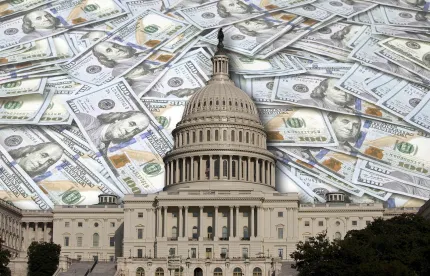Significant banking legislation is unlikely to materialize in the 118th Congress. Narrow majorities for both parties in the House and Senate, and deep partisan divides in general, will make consensus on any reforms difficult to achieve. However, the Senate Banking Committee and the House Financial Services Committee will be conducting significant oversight of the Biden administration and independent agencies such as the Securities and Exchange Commission (SEC) and the Consumer Financial Protection Bureau (CFPB) — investigations that could lead to some bipartisan results on banking issues.
Senate Banking Committee
Sen. Sherrod Brown, D-Ohio, chairman of the Senate Banking Committee, will likely continue his preference of conducting oversight rather than pushing for substantive legislative reforms. Sen. Brown accepts the political reality that in a tightly divided Senate any significant banking legislation would likely face serious hurdles. There are, however, a few pieces of legislation that could progress through the committee.
Following the failure to pass the marijuana-banking reform bill in 2022, referred to as the “SAFE Banking Act,” Sen. Brown made comments in late December indicating that he will bring up the bill again in 2023.
On housing reform, ranking member Sen. Tim Scott, R-S.C., has made public comments on the need to encourage private investment and greater supply in the housing market to combat a “[f]ederal housing policy that has long been disconnected from economic reality.”
There is also bipartisan consensus on the need to bring greater scrutiny to the largely unregulated cryptocurrency market in the wake of the collapse of FTX in November 2022. Sen. Brown in a February 14 hearing on the issue laid out in plain terms that “[w]e can start with … a regulatory framework for digital assets that puts consumers first and keeps our financial system safe.” Proposed regulations from Sen. Brown include clear transparency requirements for crypto firms, conflict-of-interest rules, limits on use of customer funds, basic good governance requirements, and robust consumer protections.
House Financial Services Committee
Similar to the Senate, the narrow majority for House Republicans will likely lead to committee time and energy being spent on oversight of the Biden administration and of the leaders of the various independent financial agencies in lieu of new legislation. In particular, the CFPB and the SEC will be in the crosshairs of House Financial Services Chairman Patrick McHenry, R-N.C., in order to investigate the CFPB’s regulatory authority over nonbank lenders and the SEC’s rules on environmental, social, and governance (ESG) disclosure requirements for banks. Republicans like Rep. Andy Barr, R-Ky., chairman of the Financial Institutions and Monetary Policy Subcommittee, have also raised the alarm on the lack of new banks created in recent years and the increased rate of consolidation and mergers of community banks.





 />i
/>i

